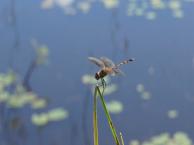Profile
Blog
Photos
Videos
Brasil
A short recap for a short stay.
With initial plans not encompassing brazil at all, we naturally hadn't developed much expectations. We knew it to be a vast country both in size and population and that it is one of the more costly nations in the continent, so we didn't think to stay there long. Additionally, knowing that the national language was Portuguese we were in for some adventures!
We entered Brazil from Uruguay along the Atlantic Coast on route for its 2 major natural drawcards, iguassu falls and the pantanal wetlands. After two back to back night buses via porto Alegre we arrived in Foz do iguacu, a reasonably large city deep inland.
Creating a natural border between Argentina and Brazil, the iguassu Falls at 1500m wide are something special, even with the thousands that come to reel in its glory. Some 230 cascading cataratas fall aggressively 70m into an abyss, creating an amazing visual spectacle for the hordes. Thanks to the tourism, the infrastructure un both countries enables viewer to really experience the true force of the falls. In Brazil, one platform takes you right onto the river at the base of the major falls, whilst the in Argentina you can walk right out onto the top of the Garganta del Diablo, the most famous of all.
From there we were on route for Bolivia after a realisation of the travel budget, being so far well and truly assaulted. First seeing to pantanal wetlands was highly important.
We took a night bus to campo grande where we were to meet Gill, the owner of Pantanal discovery, where we were to be sweft off directly to the pantanal. He encouraged us to hold off on our plans as it was a public holiday and packed in the pantanal.
We took his advise to headed to the town of bonito on the outskirts of the pantanal. This town was said to be the highlight to our trip. It had many amazing looking trips and tours including, abseil/cave/dive combo, but all high end of the budget, so we just relaxed, hired bikes, and enjoyed the crystal clear rivers, and the sub tropical climate.
After poor correspondence from gill, he was soon to lose our business. An English women in our hostel and her husband were starting up pantanal day tours, which would go deeper into the pantanal the other companies on offer. We took the offer with the agreement that they would drop us in Corumba, the ruggedly cliche border town with Bolivia. It was definitely the cheaper alternative and worked in with our plans.
Although we only had a day we did make the most of the daylight hours. The pantanal wetlands was awe inspiring and something to remember for years to come, alike that of iguacu. It was a place of constant intruigue. From giant bird to monkeys and caimans, every direction you wish to look there was something of amusement. Simply put, It was like a zoo, but for wild animals. The kind of zoo that I like. Not those that lock animals up in small enclosures, and use the excuse the excuse that they are ambassadors for there struggling species.
What did catch my attention soon after arriving was that the majority of the Pantanal is privately owned and farmed. The government imposed a strict law that 30% of any owned land must be left to provide habitats for wildlife. This means that it is possible for 70% of one of the most biodiverse areas can still be cleared for some reason I don't think we would like 70% of our homes flattened. I suppose however that it's better than nothing and it seems to be and effective initiative as it was a amazing place.
Another thing that I have decided upon, which I had not known before is that Portuguese is quite a terrible language. The best way I can describe is by comparing it to the guitar. Spanish is fluid and rhythmical, whereas Portuguese sounds as if a two year old had had a good play with tuning keys. Often many harsh twang sounds were heard, obviously just were ugly words forming sentences.
Brazil is in a poor condition. Its grand population beholds a major class separation, described to me to be somewhat like India. With it comes all the problems of crime and poverty and things in between. Although I did not get to see or experience this, thankfully, it is indeed saddening to hear. Favelas, are areas of cities where almost all occupants fall into the poverty bracket. They are famous for a large majority of drug trafficking in brasil. Although this is true, they are relatively safe. The cartels are mediate crime in the slums, and therefore it is possible to explore with tours. Watch a movie called City of God, which has some good examples of what still goes on today in Brazil.
Overall our time in Brazil was pretty swell. And against previous thoughts it wasn't crazy expensive. We only skimmed the surface of a country of rich nature, culture and history. There I look forward to returning to explore some in the future.
- comments




